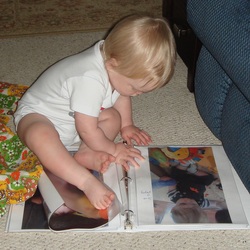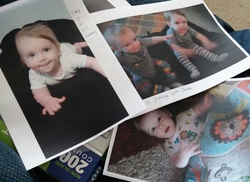 Manners are learned through play.
Manners are learned through play. “May I have a turn on the swing?”
“Thank you!”
Hearing these polite phrases is an unexpected delight, rather than a rule. What is desperately needed today is the idea of treating others with care and consideration. At the very least, we need to teach children “civility,” which is the bare minimum of good manners. Being polite takes civility a step further, implying polished manners and thoughtfulness.
In today’s society, there is a lack of good manners. Often people don’t seem to care about how they treat others in what they say or do. But is politeness important when there are deeper problems: war, abuse, disease, hunger?
Why Teach Children Civility?
When a child asks, “May I have a turn on the swing?” not only will he very likely get a turn, he might also make a new friend. When a child asks, “Could I please have one of your cookies?” she is taking a risk. The answer could be, “Yes!” or “No!” Good manners involves risks that are worth taking. When a child gets a cookie or a turn on the swing and responds with a “Thank you,” other children will appreciate her attitude -- and learn that politeness has its own rewards.
Hopefully, teaching you child good manners will go beyond the superficial act of saying and doing the right thing, and also teach the caring attitude that makes manners come naturally. In many cultures all over the world, there is a saying similar to the “Golden Rule:” Do unto others as you would have others do unto you. It simply means, treat other people as you would want to be treated. This is the basis for civility. Good manners makes life more pleasant for everyone involved.
Different Setting, Different Rules
Your child learns that different behaviors may apply in different situations. At home your child can help pick up his toys after he plays. At the grocery store, he might help pick up a box of cereal that has fallen off the shelf. At home your child might have a special teddy bear she doesn’t want to share with anyone. At daycare, all the toys are for sharing. When at home, your child might talk about the TV show you are watching, but at the movie theater, she will have to wait until the movie is over, or whisper quietly so she does not disturb the other people in the theater. When riding in the car, your child should stay seat belted in his car seat, but on a train, all the seats might be taken so she might have to stand or give his seat to an elderly person.
Different settings call for different rules. It’s a lot to learn. Before you go to a restaurant with your child, you might tell him what to expect. “We all have to sit quietly while we are waiting for our food.” “We all have to wait until we are finished eating before getting up from the table.” These expectations are very different from what is expected at home where the food maybe on the table when he sits down for supper and where he can get up and play when he is finished eating.
How Children Learn Good Manners
Children very much want to please the adults they love. But manners do not come naturally. Manners need to be taught. Children are egocentric, meaning that they have trouble seeing a situation from another person’s viewpoint. Sometimes it might not feel good to share or say, “I’m sorry.” It’s best not to force your child into being polite because then while the outward actions will show correct behavior, the heart will be in the wrong place. Instead, if there is a special toy belonging to your child and she is not ready to share it, ask her to help her friend find one of her other toys to play with. If your child is not ready to say, “I’m sorry,” don’t force her. It will embarrass all the people involved. You can say, “I’m sorry,” for her.
Children are naturally curious. They might ask a question in front of someone that is not polite. For example, pointing to a pregnant woman, a child might say loudly, “Why does she have a big tummy?” The situation can be uncomfortable for you. You can apologize on behalf of your child. Children don’t always know when they are being rude. “Our job as parents is to teach children acceptable ways of expressing themselves,” points out Nancy Samalin, best-selling author of parenting books.
If you treat your child politely, it is more likely he will treat you and other people politely. If you knock on his bedroom door before entering, if you don’t scold him in front of his friends, if you show others you care about him, mostly like he will reflect your good attitude and good manners.
Amy Houts is the author of over 60 books for children and four cookbooks including, Mealtime Magic: Delicious Dinners in Half the Time, Cooking Around The Country With Kids: USA Regional Recipes And Fun Activities, and the companion cookbook, Cooking Around The Calendar With Kids: Holiday And Seasonal Food & Fun. See more about Amy and her books at her website.






 RSS Feed
RSS Feed
